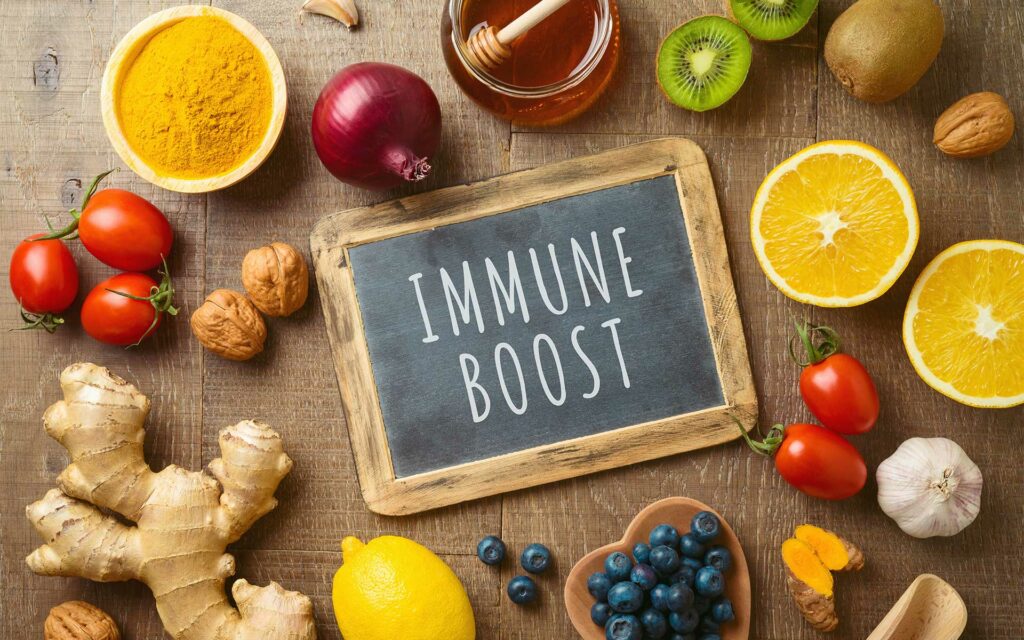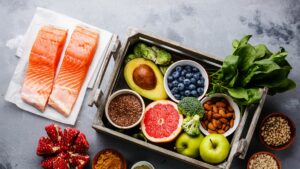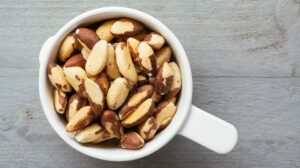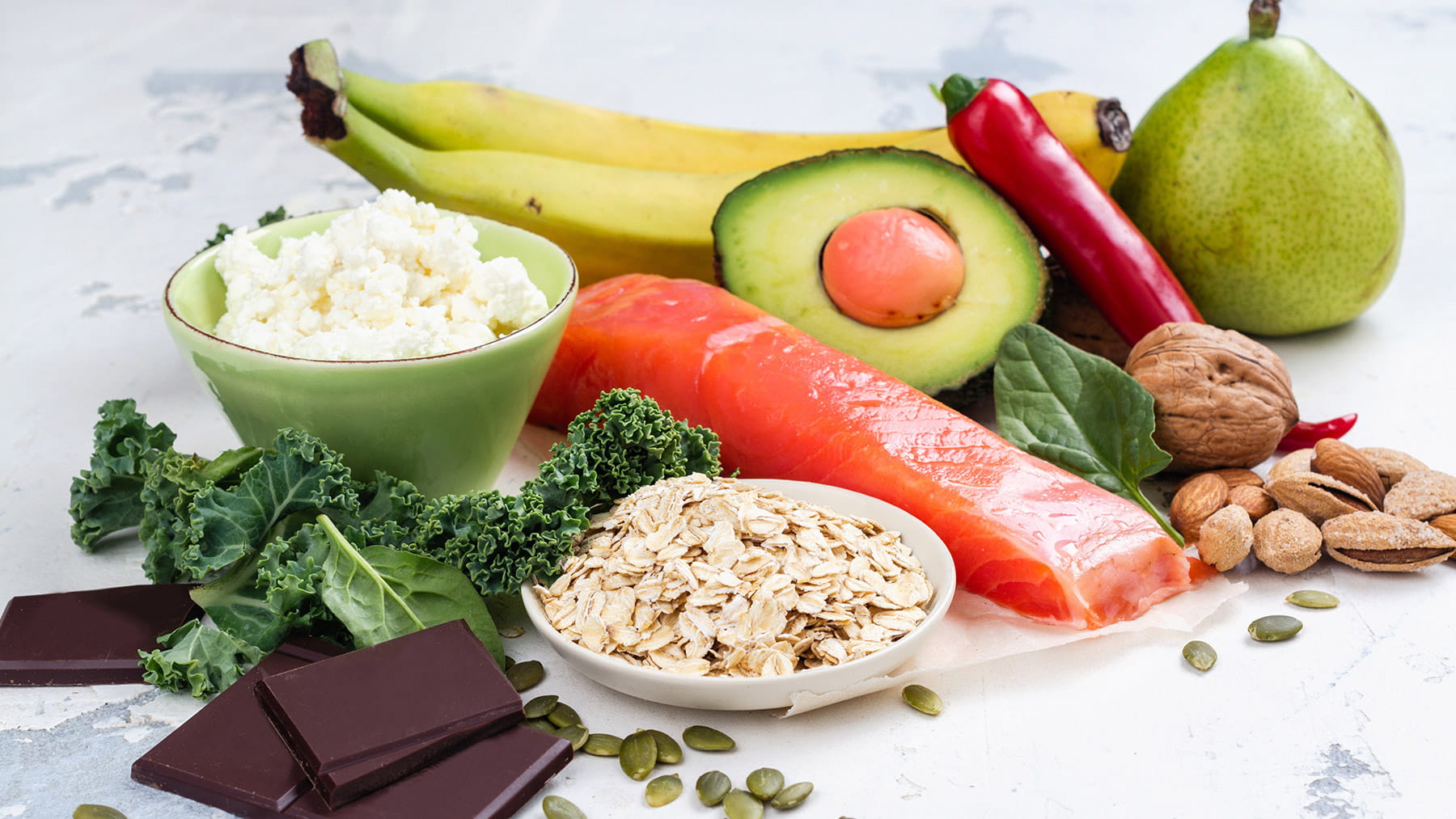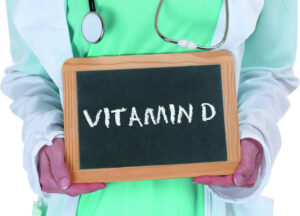Foods high in zinc include oysters, beef, chicken, yogurt, and pumpkin seeds. Zinc is an essential mineral that plays a vital role in various bodily functions, including immune system support, wound healing, and cell division.
Ensuring adequate zinc intake is crucial for optimal health and well-being. Incorporating these zinc-rich foods into your diet can help meet your daily requirement and promote overall wellness. Let’s explore the benefits of consuming these foods and how they can contribute to your nutritional needs.
Table of Contents
Why Zinc Is Essential For Immune Function
Zinc is an essential mineral that plays a vital role in maintaining a healthy immune system. It acts as a co-factor for various enzymes and is involved in numerous biochemical processes in the body. The immune system relies on zinc for proper functioning and response to infections and diseases.
One key benefit of zinc for the immune system is its ability to enhance the production and function of white blood cells, which are responsible for fighting off harmful pathogens. It also plays a crucial role in the development and activation of T-cells, which are specialized immune cells that help recognize and destroy infected cells.
In addition to its immune-boosting properties, zinc also supports overall health. It is involved in DNA synthesis, cell growth, and repair. It aids in the maintenance of healthy skin, nails, and hair. Furthermore, zinc contributes to normal cognitive function and assists in the regulation of hormone levels.
Some of the best food sources of zinc include oysters, beef, lamb, pumpkin seeds, and spinach. Incorporating these foods into your diet can help ensure you’re getting an adequate amount of this essential mineral to support your immune system and overall well-being.
Top Sources Of Zinc
Zinc is an essential mineral that plays a crucial role in maintaining overall health. It is involved in various bodily functions, including immune system support, wound healing, and cell division. To meet your daily zinc needs, it’s important to incorporate foods rich in this mineral into your diet. Below are some of the top sources of zinc:
| Red meat | Beef, lamb, and pork are excellent sources of zinc. Opt for lean cuts and include them in your meals to boost your zinc intake. |
| Shellfish | Oysters, crab, and lobster are high in zinc. Enjoy them in moderation to add variety to your diet and increase zinc levels. |
| Legumes | Beans, lentils, and chickpeas are plant-based sources of zinc. Incorporating them into salads, soups, or side dishes is a great way to get more zinc. |
| Seeds and nuts | Pumpkin seeds, sesame seeds, and cashews are packed with zinc. Snack on a handful of these nutritious foods to boost your zinc intake. |
| Dairy products | Milk, cheese, and yogurt are not only rich in calcium but also provide a good amount of zinc. Include them in your daily diet for a nutrient boost. |
| Whole grains | Foods like quinoa, brown rice, and oats are not only nutritious sources of fiber but also contain zinc. Replace refined grains with whole grains for added zinc benefits. |
Incorporate these zinc-rich foods into your meals to ensure you’re meeting your daily requirements and reaping the benefits of this important mineral.
Vegetarian Options Rich In Zinc
Pumpkin seeds are a fantastic source of zinc. They contain about 7.6 mg of zinc per ounce, which is almost 50% of the recommended daily intake for adults. Additionally, pumpkin seeds are also packed with other essential nutrients such as protein, fiber, and healthy fats. They can easily be incorporated into your diet by sprinkling them on top of salads, yogurt, or blending them into smoothies.
Lentils are not only a great source of plant-based protein but also a valuable source of zinc. Each cup of cooked lentils contains around 2.5 mg of zinc, which is approximately 17% of the recommended daily intake for adults. Moreover, lentils are rich in fiber and iron, making them an excellent choice for vegetarians and vegans.
Quinoa is an ancient grain that is rich in zinc as well as other nutrients like protein, fibre, and iron. A cooked cup of quinoa provides approximately 2 mg of zinc, contributing to about 14% of the recommended daily intake for adults. It is a versatile ingredient that can be used in various dishes, including salads, stir-fries, and grain bowls.
Chickpeas, also known as garbanzo beans, are not only delicious but also an excellent source of zinc. Half a cup of cooked chickpeas contains around 1.3 mg of zinc, accounting for approximately 9% of the recommended daily intake for adults. These legumes are also packed with protein, fibre, and other essential nutrients, making them a nutritious addition to salads, soups, and stews.
Spinach is a leafy green vegetable that provides a myriad of health benefits, including a good amount of zinc. One cup of cooked spinach offers around 1.4 mg of zinc, contributing to about 10% of the recommended daily intake for adults. Furthermore, spinach is loaded with other essential nutrients such as vitamin A, vitamin C, and calcium, making it an incredibly nutritious choice.
Tofu, a popular plant-based protein source, also contains a decent amount of zinc. A 100-gram serving of tofu provides approximately 1 mg of zinc, which accounts for about 7% of the recommended daily intake for adults. Additionally, tofu is low in calories and packed with other essential nutrients such as iron and calcium. It can be used in various recipes, including stir-fries, curries, and salads.
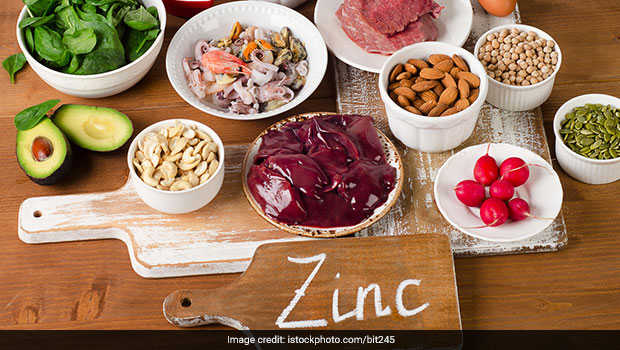
Credit: www.ndtv.com
Recipes To Incorporate Zinc-rich Foods
Discover delicious recipes that incorporate zinc-rich foods. From oysters to pumpkin seeds, these nutrient-packed dishes are not only tasty but also beneficial for your body’s zinc levels.
High in zinc, red meat stir-fry with colorful vegetables is a delicious dish to try. Sauté lean cuts of beef with an assortment of vibrant veggies like bell peppers, carrots, and broccoli. The combination of these ingredients not only adds flavor to the stir-fry but also provides a good amount of zinc to your diet.
Another great option is a shellfish salad with a citrus dressing. Combine a variety of shellfish like shrimp, mussels, and crab with a tangy citrus dressing made with lemon and orange juice. This refreshing salad not only satisfies your taste buds but also provides a healthy dose of zinc-rich shellfish.
Get your dose of zinc and a variety of other nutrients with a hearty lentil soup with spinach and spices. Lentils are not only a good source of plant-based protein but also contain zinc. Spinach adds an extra nutritional punch with its high zinc content as well as vitamins and minerals.
For a zinc-packed snack, try making pumpkin seed granola bars. Mix together oats, pumpkin seeds, honey, and other favorite ingredients like dried fruits or nuts. These bars make a great on-the-go snack and provide you with a boost of zinc.
Add zinc-rich grains like quinoa and protein-packed chickpeas in a salad with fresh herbs for a nutritious meal. Quinoa and chickpea salad with fresh herbs is a flavorful dish that combines different textures and flavors while also delivering a significant amount of zinc.
Zinc Supplements For Immunity Support
Zinc is an essential mineral that plays a vital role in supporting a healthy immune system. Understanding when to consider zinc supplements is crucial in ensuring optimal immune function. It is important to note that recommended daily intake of zinc varies depending on age groups. For infants aged 0-6 months, the recommended intake is 2 mg, whereas for children aged 4-8 years, it is 5 mg. Potassium-rich foods, such as meat, shellfish, and legumes, are excellent sources of zinc. However, supplementation may be necessary for individuals who have a zinc deficiency or those who have specific dietary restrictions.
As with any supplement, it is essential to be aware of potential side effects and precautions. Although zinc supplements are generally safe, taking high doses for an extended period may lead to gastrointestinal discomfort and interfere with the absorption of other minerals. It is advisable to consult a healthcare professional if you are considering zinc supplementation, especially if you have any pre-existing health conditions.
When choosing the right zinc supplement, consider factors such as the form of zinc (e.g., zinc gluconate, zinc acetate), dosage, and quality of the product. Look for reputable brands that undergo rigorous third-party testing for purity and potency. Discuss with a healthcare provider to determine the appropriate supplement based on your specific needs and health status. Remember, supplements should complement a balanced diet rather than replace it.
Tips For Maximizing Zinc Absorption
Pairing zinc-rich foods with vitamin C sources: Consuming foods high in zinc along with those that are rich in vitamin C can enhance zinc absorption in the body. Some vitamin C-rich foods include citrus fruits, strawberries, kiwi, bell peppers, and broccoli. Consider incorporating these foods into your meals and snacks along with zinc-rich options like oysters, beef, chicken, and pumpkin seeds.
Cooking and preparation techniques for better zinc absorption: Certain cooking methods can help enhance the bioavailability of zinc. Soaking beans, legumes, and whole grains before cooking can reduce the phytic acid content, which can inhibit zinc absorption. Fermentation and sprouting can also help in reducing phytate levels. Additionally, cooking meats, shellfish, and poultry thoroughly can aid in breaking down proteins and improve zinc availability.
Avoiding substances that can hinder zinc absorption: Some substances can interfere with zinc absorption, including phytic acid found in grains and legumes, calcium, and iron supplements, and excessive dietary fiber. Limiting the intake of these substances, especially during meals high in zinc, can promote better absorption.
Timing and spacing out zinc intake for optimal absorption: It is advisable to space out zinc intake throughout the day rather than consuming large amounts in a single sitting. Taking zinc supplements with a meal or snack can also enhance absorption. However, it is essential to follow the recommended dosage guidelines provided by healthcare professionals to ensure safe and effective utilization of zinc.
Zinc And Immune Health: Myth Vs. Reality
Zinc has long been touted for its potential benefits in supporting immune health. However, it is important to separate fact from fiction when it comes to understanding its role in the immune system. Let’s address some common misconceptions about zinc and its impact on immune function. Controversial claims and conflicting research can make it challenging to determine the true effects of zinc on immunity. Some studies suggest that zinc supplementation can enhance immune function, while others fail to show significant benefits. It is essential to critically examine the quality and design of such studies to better understand their implications. Moreover, zinc’s ability to boost immunity may have certain limitations. While it is true that zinc plays a vital role in various immune processes, including cell growth and function, its effects may be more pronounced in specific populations or situations. Additional research is needed to fully explore these nuances and determine the optimal role of zinc in supporting immune health. In summary, while it is important to recognize the potential benefits of zinc in immune health, it is crucial to approach the topic with a critical eye. By examining the existing research and addressing conflicting findings, we can gain a more accurate understanding of zinc’s role in boosting immunity.
Frequently Asked Questions For Which Foods High In Zinc
What Are Some Foods High In Zinc?
Foods high in zinc include oysters, beef, spinach, pumpkin seeds, lentils, and cashews. These foods are rich sources of zinc and can help meet your daily requirements of this essential mineral.
How Does Zinc Benefit The Body?
Zinc is essential for the body’s immune system, protein synthesis, and DNA synthesis. It also helps with wound healing, supports the senses of taste and smell, and plays a role in cell division. Ensuring an adequate intake of zinc is important for overall health and well-being.
Can Zinc Improve The Immune System?
Yes, zinc plays a crucial role in the proper functioning of the immune system. It helps the immune system to fight off invading germs and viruses, reduces the duration of colds, and aids in the production of immune cells. Consuming foods high in zinc can boost your immune system and help you stay healthy.
Conclusion
To wrap it up, incorporating foods high in zinc into your daily diet can provide a range of health benefits. From enhancing immune function to improving wound healing, this essential mineral plays a crucial role in various bodily processes. Including zinc-rich foods like oysters, beef, beans, and pumpkin seeds can help you meet your recommended daily intake.
So, why wait? Start adding these nutritious ingredients to your meals and enjoy the potential advantages they offer.


